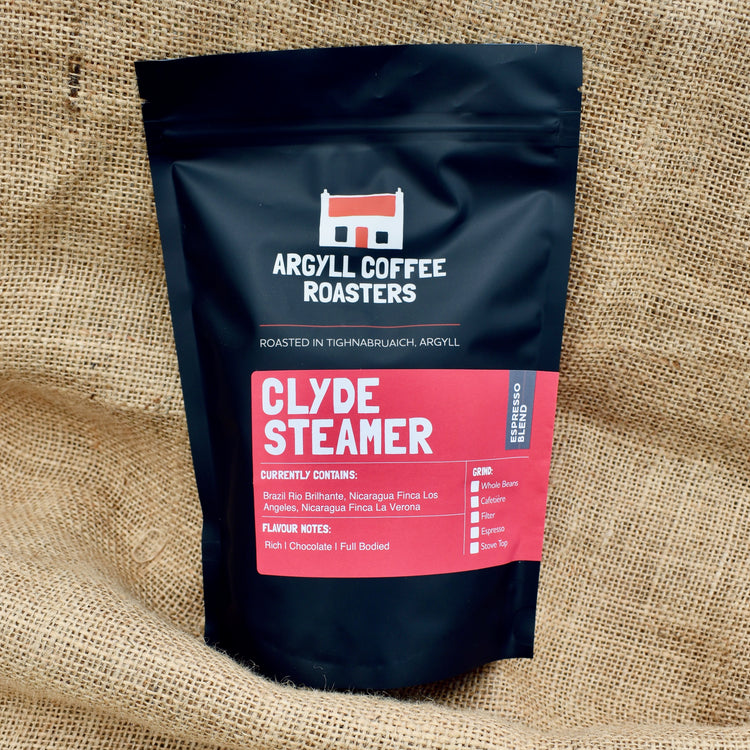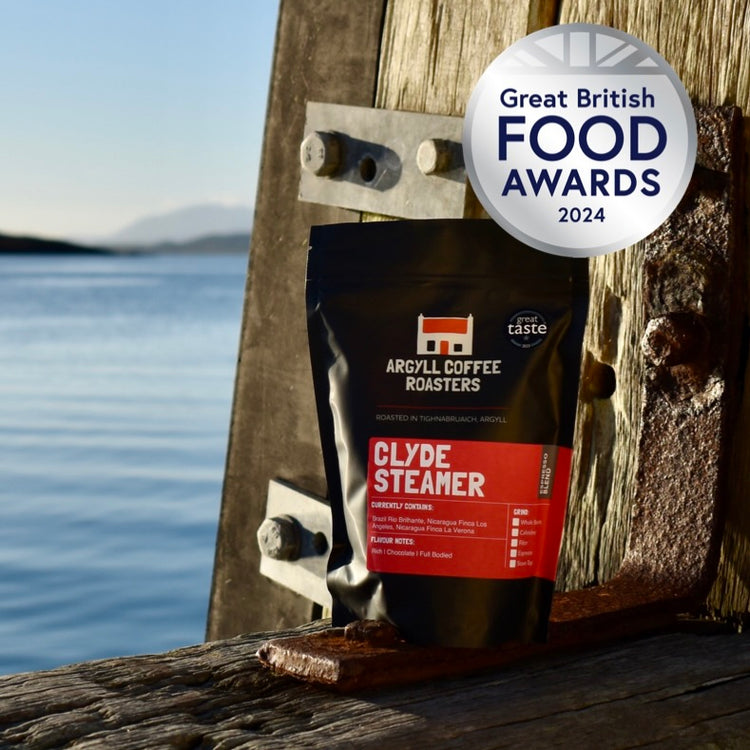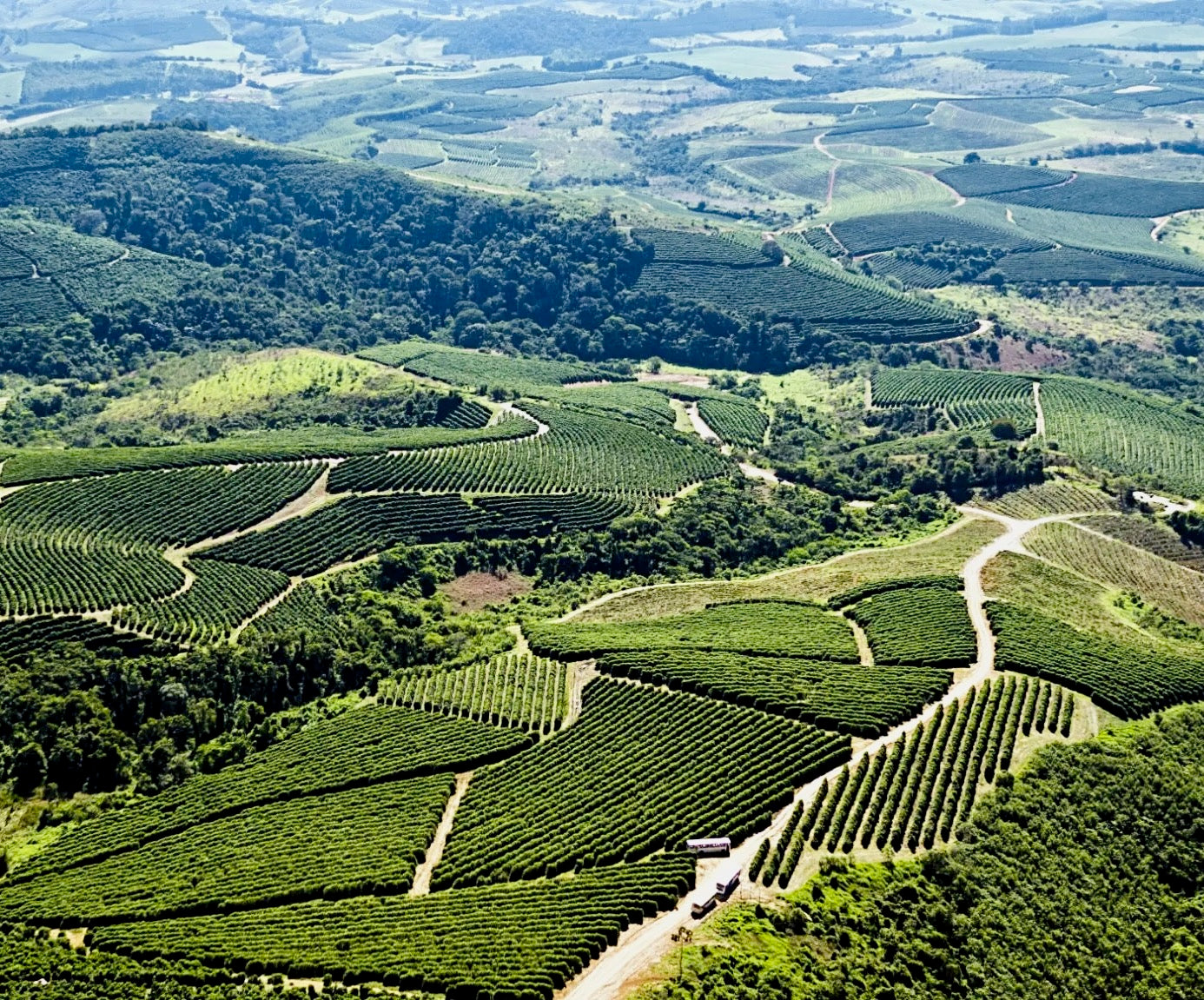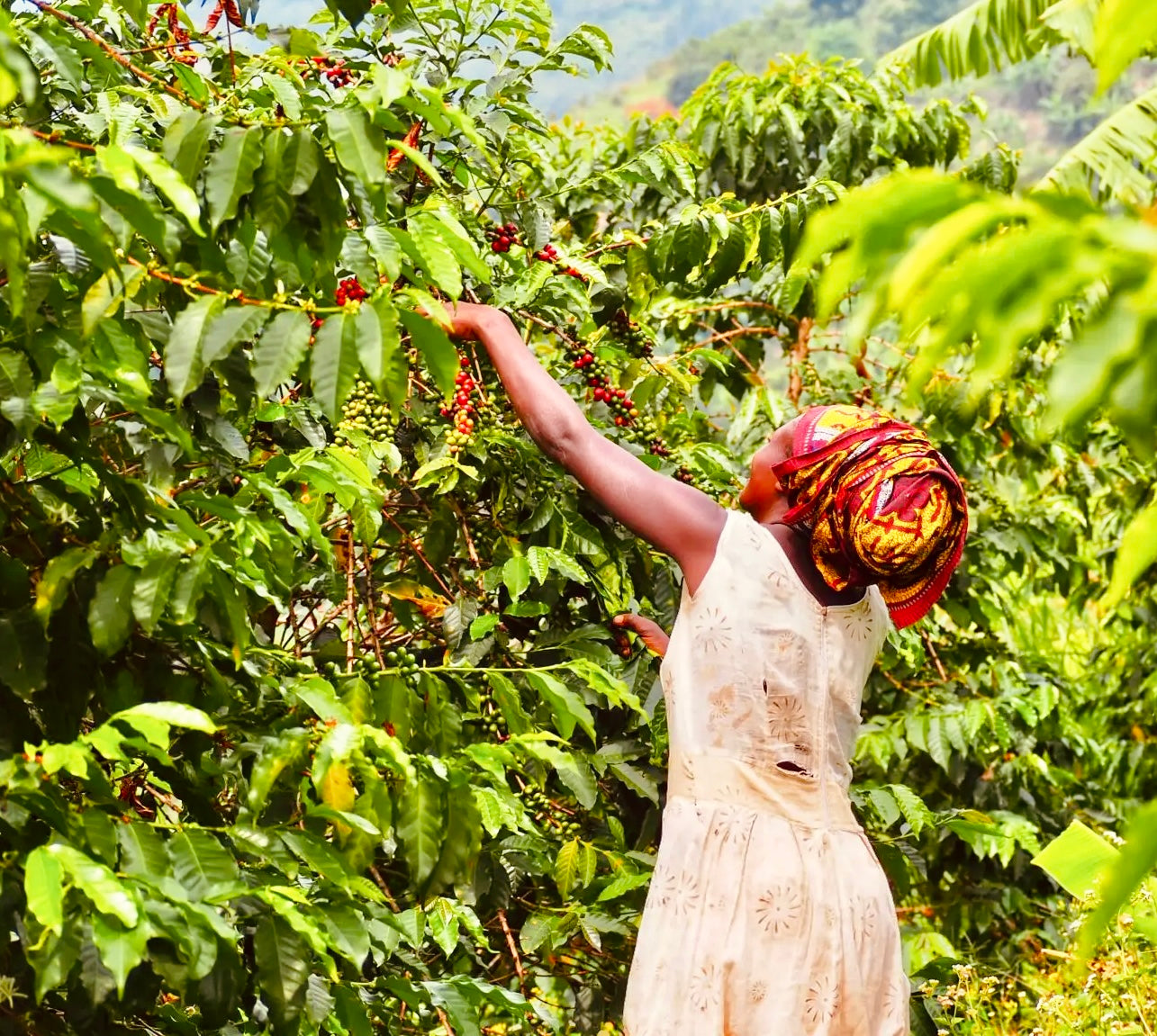Free UK shipping on all orders £18 and over
Clyde Steamer Espresso Blend - 12 months (prepaid)





Clyde Steamer Espresso Blend - 12 months (prepaid)
Buy a 12-month subscription up front and save 15% plus free delivery! This makes a perfect gift. Our award-winning house espresso blend delivers a full-bodied coffee with bags of character. This blend is seasonally changing, but always delivers rich chocolate and nutty flavours.
Couldn't load pickup availability
Product variants:
Select grind: (Need help? View Grind guide)
Description
Brazil Fazenda Vila Boa
Farm:
Vila Boa
Processing:
Natural
Owner:
Monica Borges de Sousa
Region:
Campos da Vertentes, Sul de Minas
Varietal(s):
Yellow Bourbon
Altitude:
1,150 metres above sea level
Town:
Carmo da Mata
Brazil Nova Blend
Farm:
Smallholdings
Processing:
Natural
Owner:
Smallholder farmers
Region:
Sul de Minas
Varietal(s):
Various
Altitude:
Minimum 900 metres above sea level
Town:
Various
Uganda Mount Elgon Gibuzale
Farm:
Smallholdings averaging 1 hectare each
Processing:
Washed
Owner:
1,328 smallholder farmers
Region:
Mount Elgon Region, Eastern Uganda
Varietal(s):
SL14, SL28
Altitude:
1,700 to 2,200 metres above sea level
Town:
Bulambuli District, Buginyanya Sub-County







